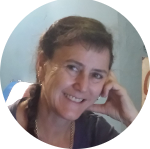-
Member Login
- Home
- About
- Institute Groups
- Membership
- Events
- News & Publications
- Institute Programs
- Resources
- Jobs Board
- Contact Us
- Site Info
Claire Gronow FEIANZ CEnvP
Claire Gronow FEIANZ CEnvP
Abstract | Issues and challenges for addressing uncertainty in IA practice
Impact assessment (IA) relies upon being able to predict changes that may occur to environmental and social systems, values and resources as the result of a proposed action. As these predictions may trigger significant decisions about a development proposal, including a decision about whether to proceed, the accuracy of these predictions is clearly important. However there are many sources of uncertainty in IA. In particular, the social and environmental systems that IA practitioners are working with are extremely complex and subject to a wide range of natural variations and, increasingly, anthropogenic pressures. This means that even with great diligence and effort on the part of impact assessment (IA) practitioners, it is unlikely that uncertainty can be eliminated from IA. This paper briefly reviews how uncertainty is currently addressed in IA practice in Australia and New Zealand, drawing both on recent research in Canada, and a review undertaken by a working group established by the Impact Assessment SIS. The paper then examines some of the key issues and challenges for practitioners and regulators in dealing with uncertainty and makes suggestions for how these might be managed. Issues include determining acceptable levels of uncertainty, conceptualising and modelling complex systems, assumptions and bias, uncertainty in qualitative predictions, particularly in social impact assessment, reporting on uncertainty, and communicating uncertainty to the public, proponents and decision-makers.
Bio | Claire Gronow FEIANZ CEnvP
 Claire is an environmental scientist and has been undertaking environmental impact assessments since 1990. She is deputy chair of the EIANZ Impact Assessment SIS and is currently leading a working group to examine how uncertainty is dealt with in EIA practice. Claire is also undertaking a PhD on the how EIA influences major development proposals.
Claire is an environmental scientist and has been undertaking environmental impact assessments since 1990. She is deputy chair of the EIANZ Impact Assessment SIS and is currently leading a working group to examine how uncertainty is dealt with in EIA practice. Claire is also undertaking a PhD on the how EIA influences major development proposals.
We acknowledge and value the rights and interests of Indigenous Peoples in the protection and management of environmental values through their involvement in decisions and processes, and the application of traditional Indigenous knowledge.

